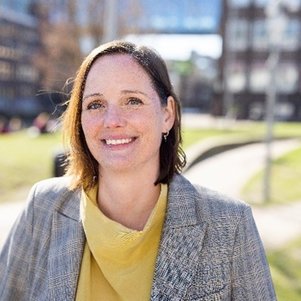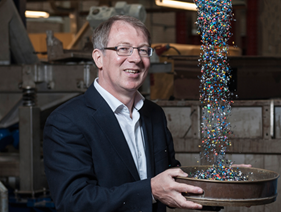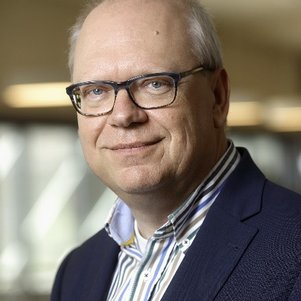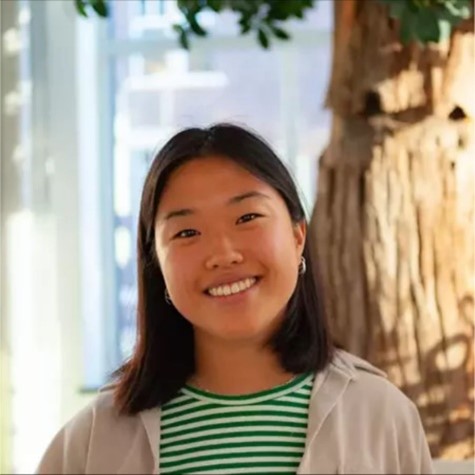Repair, Reuse, Reduce, Recycle: these 4 experts help make the circular economy a reality
The Dutch economy must be fully circular by 2050 to help stop climate change. But our society actually uses more disposable plastic packaging and we use furniture and garments for shorter and shorter periods of time. This was stated by the Netherlands Environmental Assessment Agency's biennial report on the circular economy showed last week. Within Europe, the Netherlands does lead the way when it comes to recycling, but we still do so largely "low-quality," according to the report. We turn plastic packaging into garden benches or roadside posts after recycling, for example, but not often enough our recycling leads to new plastic packaging.
Experts at TU Delft are working every day on smart solutions and new insights to help make the circular economy a reality. In the Dutch Circular Economy Week, we highlight some of them. Read more about how these people are working to "repair, reuse, reduce & recycle’.
- Ruth Mugge knows how manufacturers can design products that last longer and that consumers never want to get rid of ('repair')
- Hans Wamelink knows how to make circular building the 'new normal' and promote innovation in construction ('Reuse')
- Peter Rem knows how to turn plastic packaging into plastic packaging again and is developing breakthrough recycling technologies to recycle concrete, electronics and plastics. ('Recycle')
- Jin-Ah Duijghuisen knows how to organize the city in such a way that clothing production chains can be rehoused in the Netherlands ('Reduce')
Ruth Mugge - Professor of Sustainable Design for Sustainable Consumer Behavior
How to design products so that people never want to get rid of them
Not replacing, but repairing, buying a secondhand instead of a new model or paying better attention to the energy label. Some people make a lot of sustainable choices but for others this is quite difficult. However, through product design manufacturers and designers can help consumers to behave more sustainably. Ruth Mugge provides insight into the role of design in encouraging sustainable consumer behavior. In doing so, she attempts to answer questions such as: How can design encourage consumers to do maintenance and repair? When do consumers see a refurbished product as an alternative to a new product? How can adoption of recycled plastic products be encouraged? And how can consumers be enticed to last longer with their products?
Read more about Ruth Mugge and listen to the podcast Out of the Blue from Faculty of Industrial Design where Ruth talks about "Goodlooking crappy things.
Peter Rem - Professor of Resources & Recycling
How to turn waste back into high-quality plastic packaging ('Recycling')
In ten years, the recycling of plastics, concrete and electronics will look unrecognizable, predicts recycling expert Peter Rem. A waste treatment facility will no longer be a huge sorting yard with large separation plants, but a distribution centre from which we can distribute recovered raw materials to be remade into high-value products. The technologies that Rem and his team are developing are already partially making this happen.
One of Rem's innovations is Magnetic Density Separation, which uses a magnetic liquid to efficiently separate plastic chips by type. A large factory has now been built in Amsterdam by Umincorp, a spinoff of TU Delft, which uses this technology to separate plastics. Umincorp already manages to recover from waste 60% of plastic packaging with an average purity of 95%. In this way, plastic packaging becomes plastic packaging again.
Read more about Peter Rem's expertise in Stories of Science.And check out the company Umincorp, the TU Delft spinoff led by TU Delft alumnus and resource technologist Jaap Vandehoek.
Hans Wamelink - Professor of Construction Management and Entrepreneurship
How to make circular building the 'new normal' ('Reuse')
Circular construction requires architects to design in such a way that buildings and infrastructure can be taken apart again at the end of their lifespan. It requires builders to be willing to reuse existing building materials. The big question is what they gain - financially - by doing so. And: won't it be far too complicated to make a living this way? If not the entire chain benefits from this approach, circular construction will never truly happen, Wamelink is convinced.
Wamelink investigates how to achieve behavioral change in the building chain in order to keep circular ambitions high and true throughout the process. What interventions can you make and what incentives work to entice stakeholders? How do we make circular building the new normal? One thing Wamelink is sure of: it will never work without political pressure. Therefore, he advocates for stronger political choices to increase the urgency of circular building. He also advocates entrepreneurship education to teach students with an idea for better, smarter or cheaper construction to set up their own businesses and bring full-fledged innovations to market. After all, innovation in construction often originates bottom-up.
Read more about Wamelink's take on entrepreneurship education in Stories of Science: https://www.tudelft.nl/stories/articles/innovatie-heeft-een-plek-nodig-om-te-groeien
Or check out the pre-incubator 'BK Launch': https://entrepreneurship-abe.com/
Jin-Ah Duijghuisen (recent graduate of the Faculty of Architecture)
How to design the city so that clothing production chains can be rehoused in the Netherlands ('Reduce')
Disposable clothing made in low-wage countries is anything but a sustainable product. Yet this fast fashion dominates the shopping street scene. Jin-Ah Duijghuisen wants to influence this consumer culture for the better through spatial design. She put the textile production chain under the magnifying glass. For her master's thesis, she investigated how textile production in the province of North Brabant relates to the design and use of the landscape. With her graduation project, Jin-Ah was chosen as one of the four winners of TU Delft's Circularity in the Built Environment Graduation Award 2021-2022.
Read more about this graduation work in Stories of Science
More information
For questions and interview requests, please contact press officer Karlijn Spoor: k.spoor@tudelft.nl or 06-41612272
Also see all stories about circularity on the TU Delft story platform: www.tudelft.nl/stories




